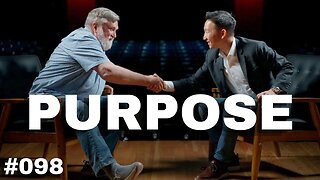What Is a Mortgage Contingency in NYC and How Does It Work?
What is a mortgage contingency and how does it work? We’ll break down this means and explain what the ramifications are. My name is John Moss, an attorney and partner at Moss & Moss LLP (https://www.mossandmoss.com/), a law firm started by my family in 1997. A large portion of our work is residential real estate transactions, and let’s dig in. To start with, a mortgage contingency in a real estate contract isn’t really what it sounds like.
Save 2% When Buying in NYC: https://www.hauseit.com/hauseit-buyer-closing-credit-nyc/
Save 6% When Selling in NYC: https://www.hauseit.com/agent-assisted-fsbo/
A mortgage contingency means that the contract is contingent on the buyer getting a mortgage commitment letter, nothing more. And to be clear on what a mortgage commitment letter is, we have to take a step back and go through the mortgage process in a little bit of detail.
At the beginning, when you’re shopping for real estate, your broker or whomever else will tell you to get a pre-approval letter. Many (but not all) pre-approval letters aren’t worth much, since the banks take only minimal information from you to issue it. Generally speaking, you won’t submit the formal mortgage application until you’ve signed the purchase contract. At that point, you’ll provide all the information the bank requires in order to fully analyze your file (what they call “underwriting”) and hopefully approve you for a mortgage.
When the bank has fully approved you, they will issue a mortgage commitment letter to you. Technically, it’s a contract stating that the bank will lend you a certain amount of money at a certain interest rate in order to buy a specific piece of real property.
Historically, the commitment letter didn’t have any conditions on it, but these days the commitment letter will have lots. The banks will make the commitment letter conditioned on things like whether you keep your job, whether you keep making the same salary, whether you stay alive, and whether or not you get them that one last tax return that you promised to send in.
If you DON’T satisfy these conditions, the bank can void the commitment letter and not fund the loan. That is, even if the bank issues a commitment letter, the bank doesn’t NECESSARILY have to fund the loan. HOWEVER, it is EXTREMELY rare that this happens. In fact, I can’t remember an instance in my practice where the bank didn’t fund the loan. But there is a non-zero possibility of this happening.
So getting back to the mortgage contingency, the contract is conditioned on you as a buyer getting this commitment letter from the bank. If you don’t get it within 30 days or 45 days or whatever timeframe your attorney negotiated, you can cancel the contract, get your deposit back, and walk away…assuming of course that you did everything you were supposed to do and acted in good faith. Or alternatively if you get rejected by the bank for a commitment letter, again you can walk away if you were acting in good faith the whole time.
But the contingency is limited to those two situations: that is, you didn’t get your commitment letter in time or you got rejected.
And if the lender does the appraisal of the apartment or house that you’re looking at AFTER the commitment letter is issued, and if the appraisal comes in lower than the purchase price, that could void the commitment letter. Or – this being the time of COVID – if you lose your job after the commitment letter is issued, that could also void the commitment letter.
That being said, as a purchaser, your lawyer can ask for a funding contingency, meaning that the contract is contingent on the bank actually bringing money to the closing table…but realistically, almost every selling attorney will simply say no to that request. To be blunt, when I’m a seller’s attorney, I generally say no, too. There are rare instances where it makes sense, but in order to have a seller’s attorney agree to a funding contingency, you as a buyer better have a really compelling reason AND a lot of leverage in order to get it.
If there is a major delay or your lender doesn’t pan out, your attorney can generally ask for more time from the seller. The seller wants to sell and usually it will take longer to find a new buyer rather than just giving you an extra few weeks to get things done. So having your attorney be in regular communication with the seller’s attorney, if they’re not already, will definitely help a lot.
I hope this was helpful and informative. And of course, if you are in need of legal services, please contact us at https://www.mossandmoss.com.
Save 2% When Buying in NYC: https://www.hauseit.com/hauseit-buyer-closing-credit-nyc/
Save 6% When Selling in NYC: https://www.hauseit.com/agent-assisted-fsbo/
.
.
Hauseit LLC, Licensed Real Estate Broker
Tel: (888) 494-8258 | https://www.hauseit.com
_
#hauseit #hauseitnyc
-
 58:47
58:47
Edge of Wonder
3 hours agoThe Art of Counterfeiting Currency: CIA, China & Iran Sponsored Fake Money?
17.2K6 -
 2:23:58
2:23:58
WeAreChange
4 hours agoTIM's ON THE LIST! Ukraine's New American Target Lists Surface!
39.5K70 -
 2:04:25
2:04:25
The Quartering
6 hours agoAmerican Flags Banned In Gym, Hot Dog Champion Gets Woke, Based NBA Coach & Woke Gaming Meltdown
44.8K7 -
 1:18:21
1:18:21
Redacted News
7 hours agoRussia LAUNCHES Nuclear War Game Exercises on U.S. Doorstep, Hunter found guilty | Redacted Live
116K361 -
 2:02:37
2:02:37
Revenge of the Cis
7 hours agoEpisode 1356: The House Always Wins
53.4K13 -
 1:02:33
1:02:33
In The Litter Box w/ Jewels & Catturd
1 day agoDems Crash & Burn | In the Litter Box w/ Jewels & Catturd - Ep. 584 - 6/11/2024
88.4K36 -
 1:05:08
1:05:08
Barstool Chicago
7 hours agoWHITE SOX DAVE CLAIMS HE CAN "LOCK-DOWN" ANYONE AT BARSTOOL 1V1
53.9K5 -
 1:12:57
1:12:57
Awaken With JP
9 hours agoTruth Conquers - LIES Ep. 44
97.5K96 -
 1:59:03
1:59:03
Matt Kim
9 hours agoDoes America Need God? w/ Pastor Doug Wilson | Matt Kim #098
66.2K17 -
 42:53
42:53
Standpoint with Gabe Groisman
9 hours agoEp. 29. Lawfare in the 2024 Elections with Josh Hammer
70.3K8